Pixel-to-pixel scale
All the figures and images below concern ESO_CCD_#65 of OMEGACAM@VST.
The pixel-to-pixel scale of ESO_CCD_#65 that was used to obtain the following results can be downloaded as exf-gain–65.fits.
A section of the pixel-to-pixel scale map
The section of the pixel-to-pixel scale for y=1500:2500, x=300:1300 looks like
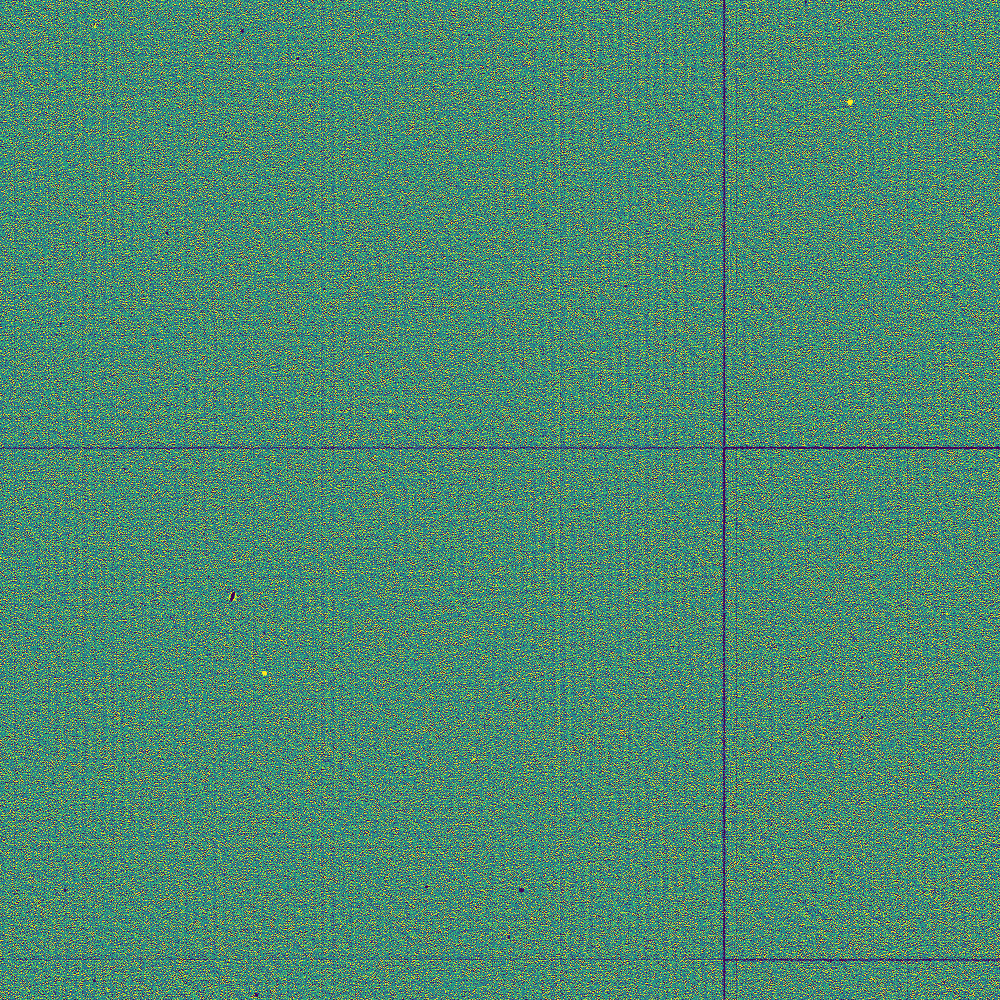
The dark lines indicating a lower scale at the stitches, as well as the different scales around some contaminations can clearly be seen.
Histogram of the pixel-to-pixel scale values
The pixel-to-pixel scale values are all well within 1±0.02 except for the pixels at the stitches and the pixels near the contaminations.
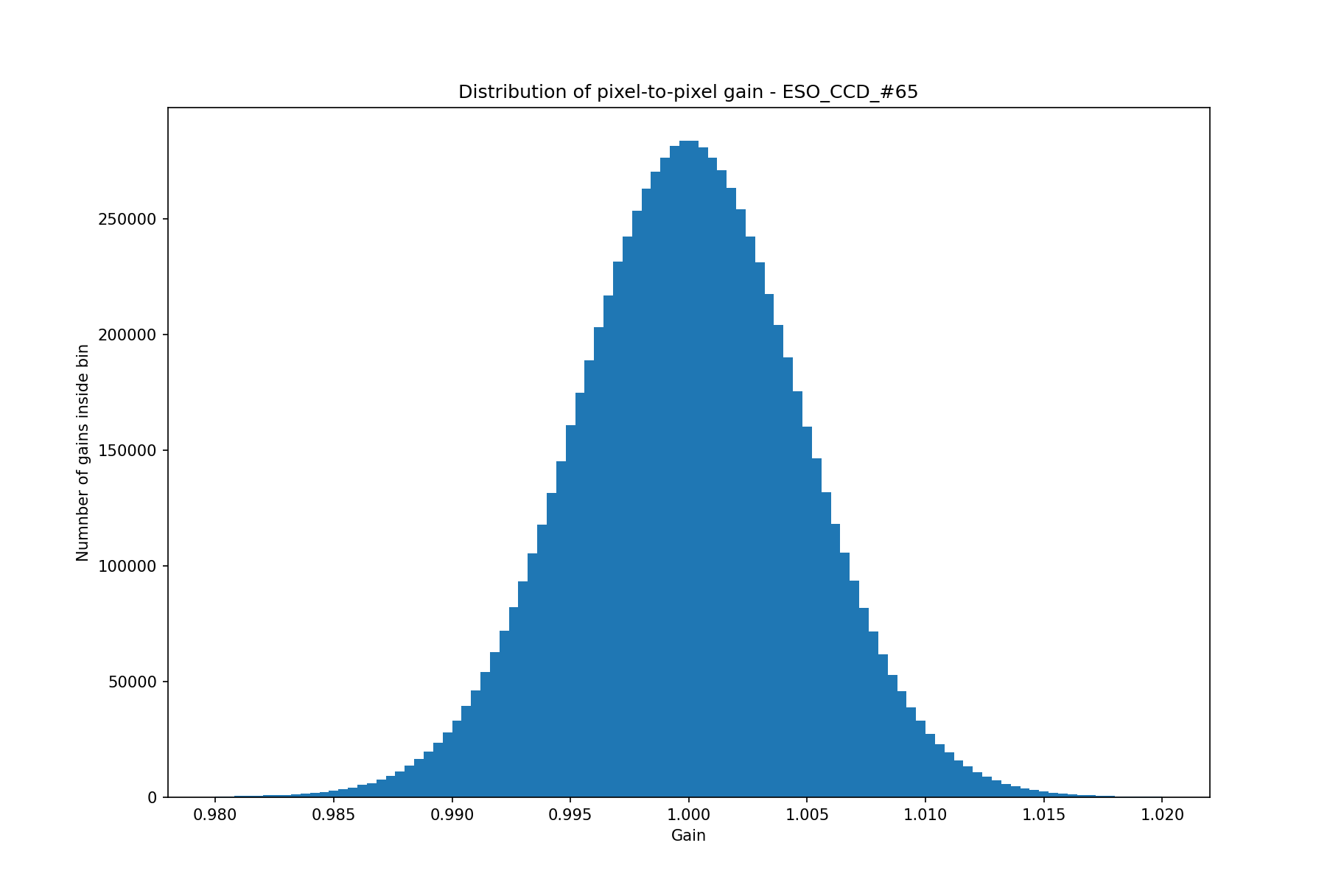
Comparing the 2011 and 2019 pixel-to-pixel scale
The pixel-to-pixel scale values in 2019 are well within 0±0.001 of their values measured in 2011.
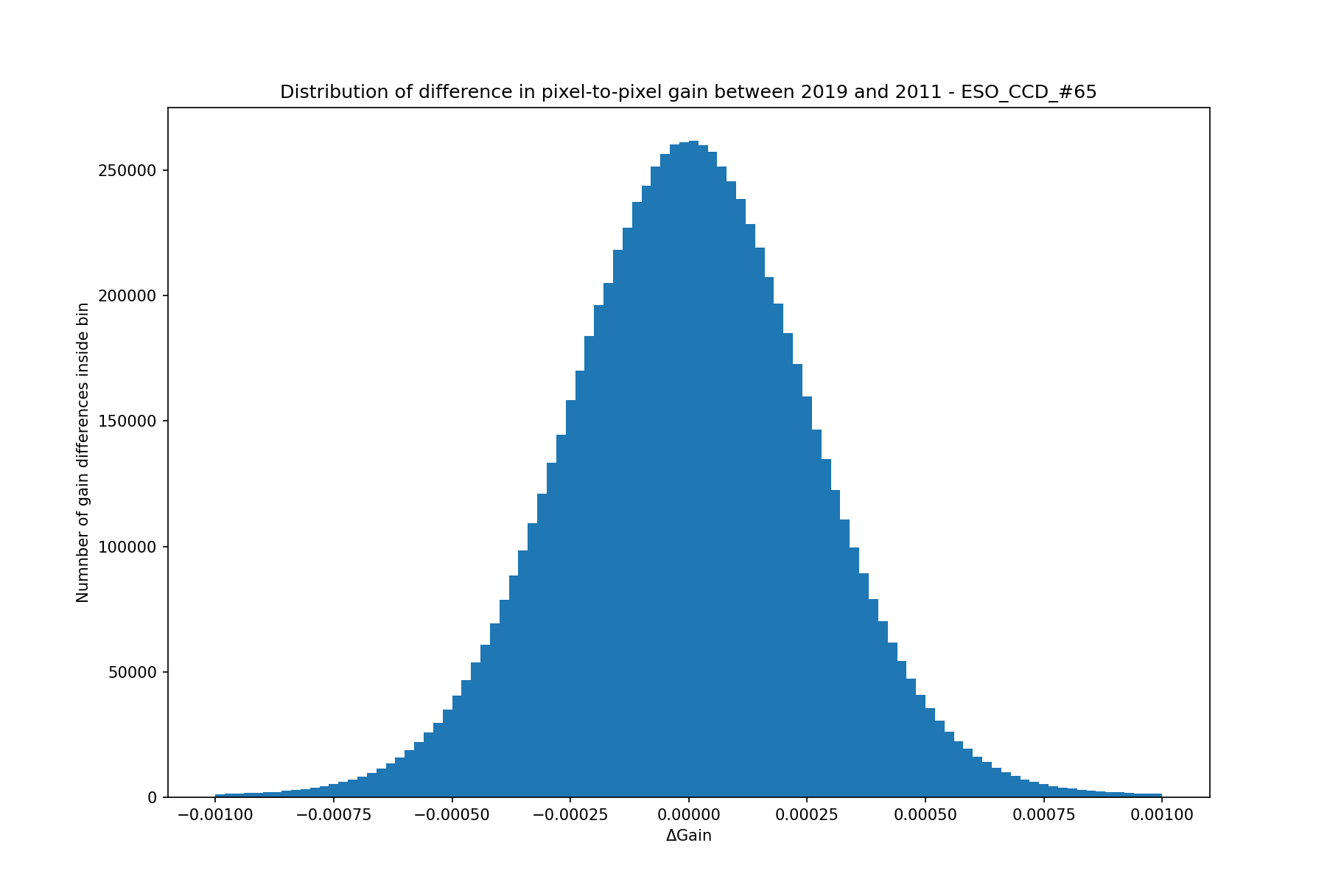
Dividing DomeFlatFrames by the pixel-to-pixel scale
On the left side a section of the DomeFlatFrame is shown. On the right side the same DomeFlatFrame divided by the pixel-to-pixel scale is shown.
Both sides are part of one two-dimensional numpy array and are scaled in exactly the same way by matplotlib. The only difference between the left and right sides is the pixel-to-pixel scale. Although the right side looks like a smoothed version of a noisier left side, no smoothing has been applied.
The same pixel-to-pixel scale has been applied to all OMEGACAM@VST filters below.
For better inspection it is recommended to download the images and use a local application that can disable anti-aliasing. For example
feh --force-aliasing -F -Z -S filename exf-dome-OCAM_*.png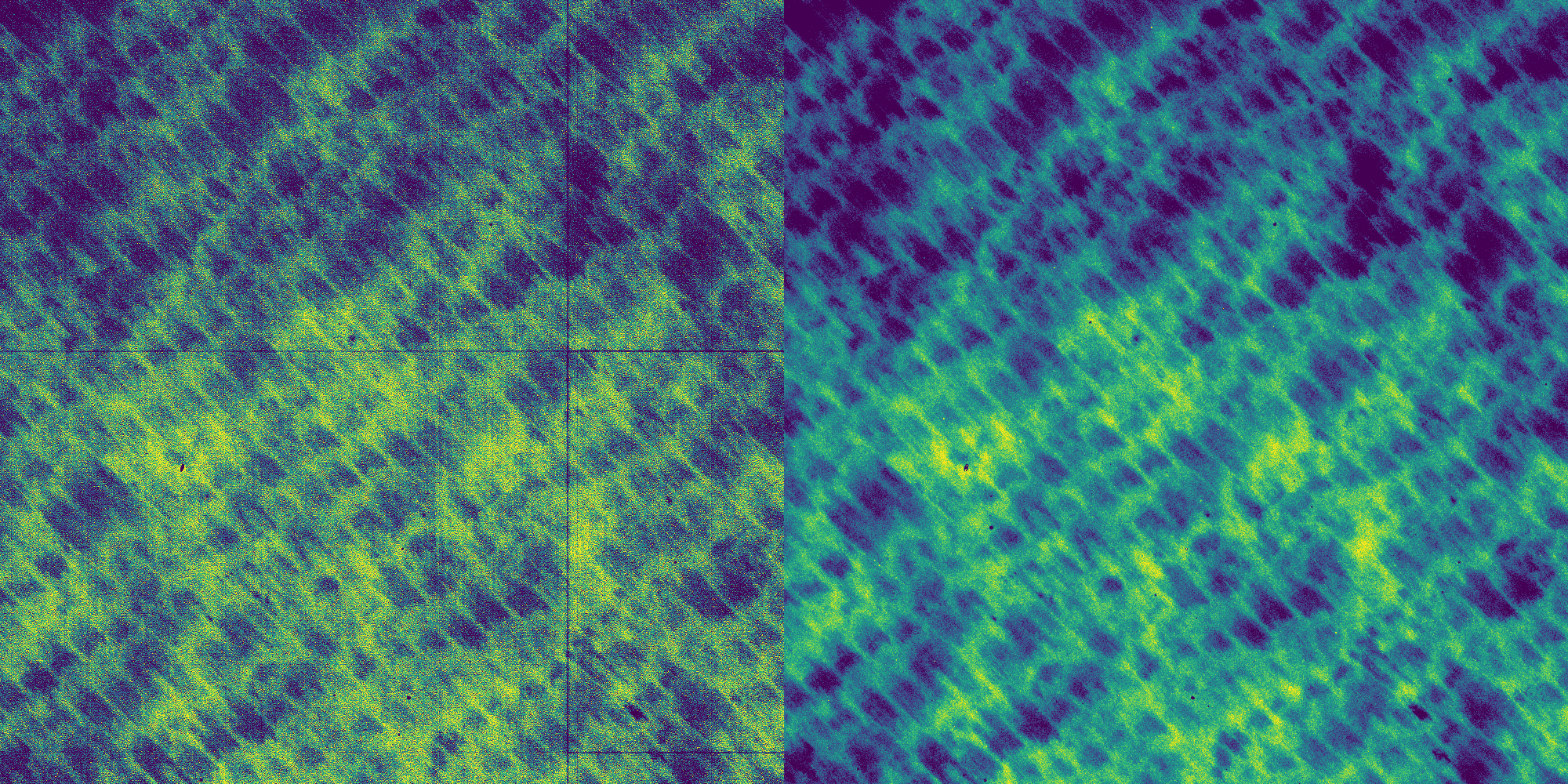
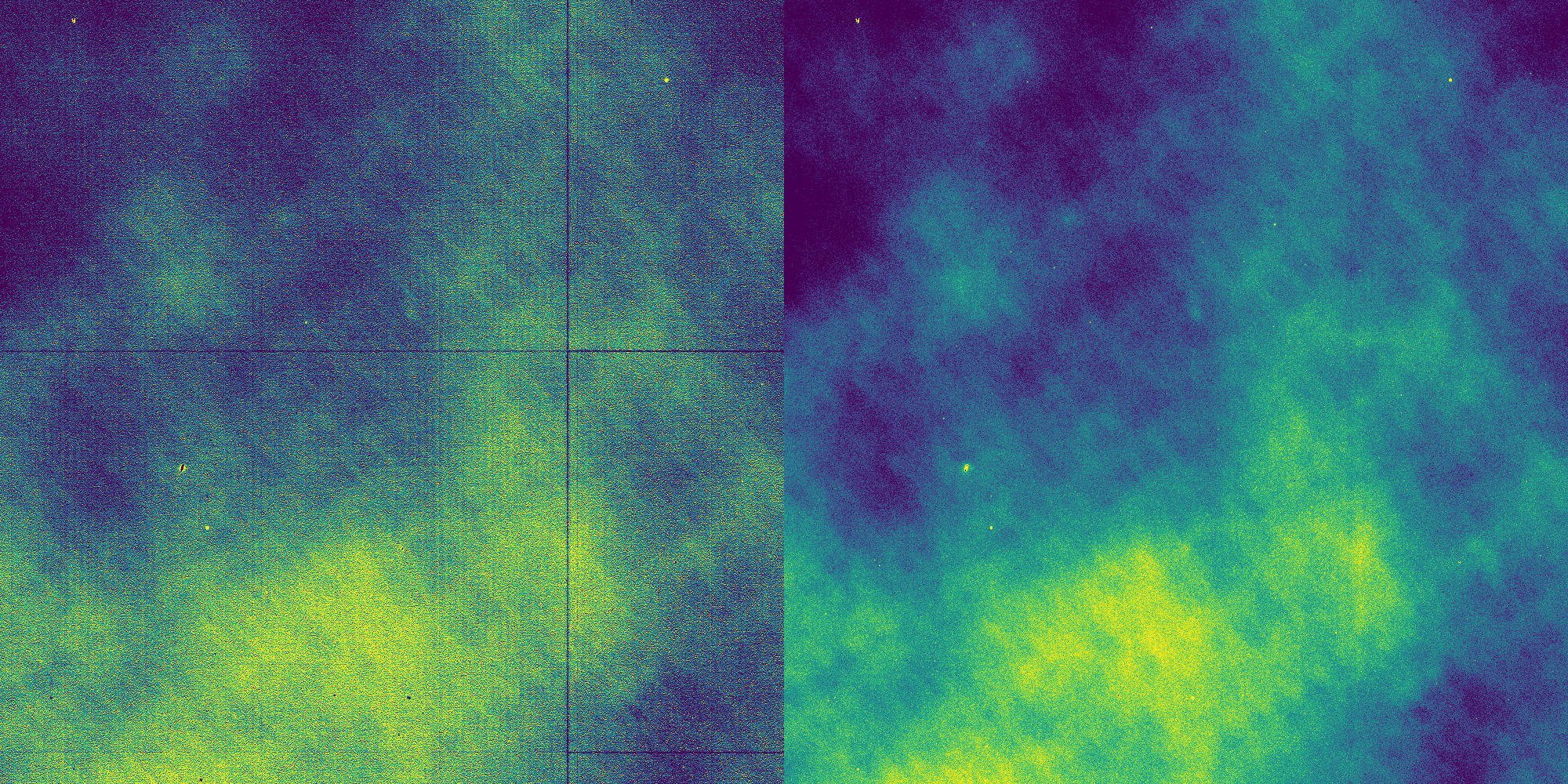
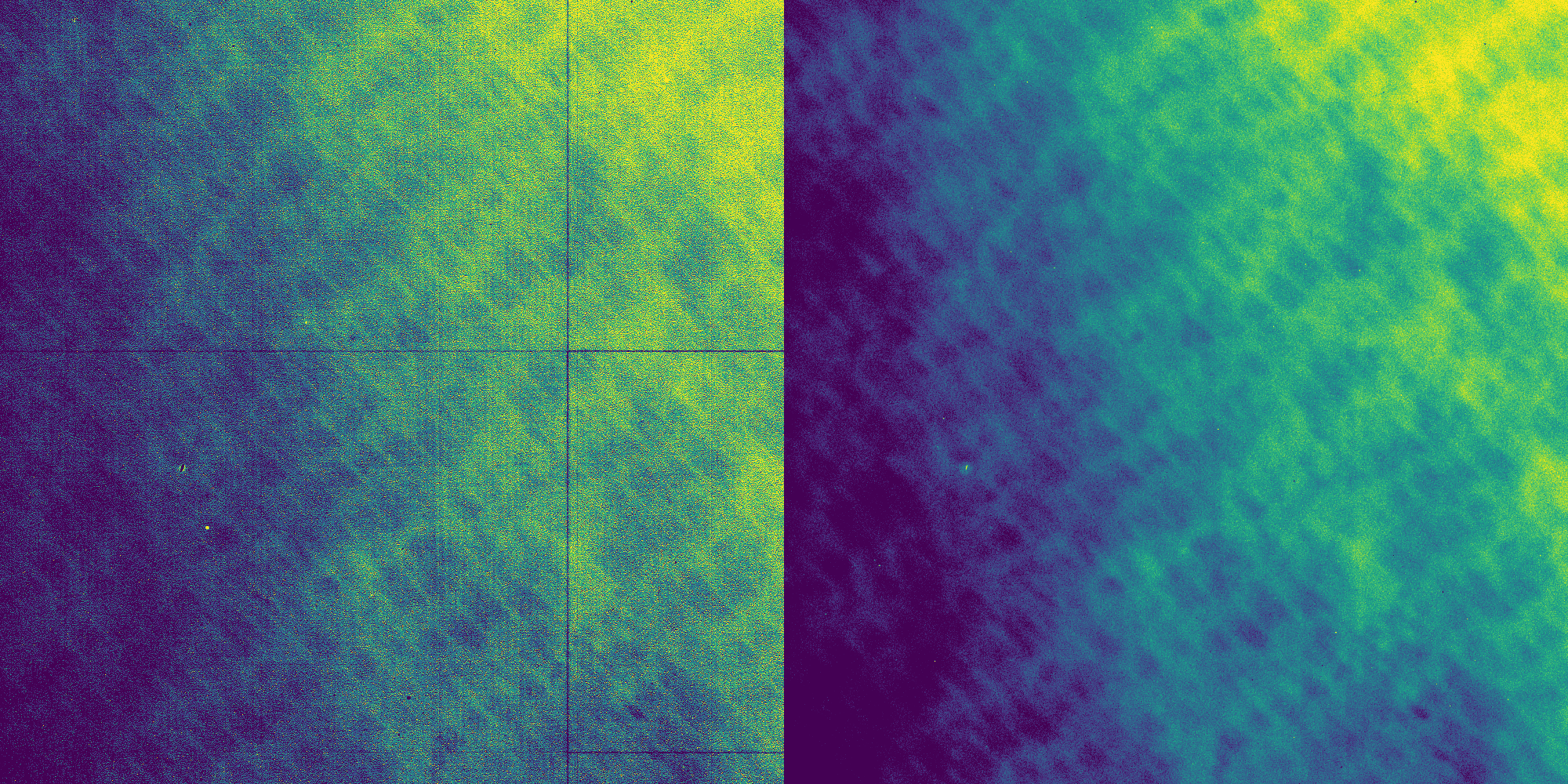
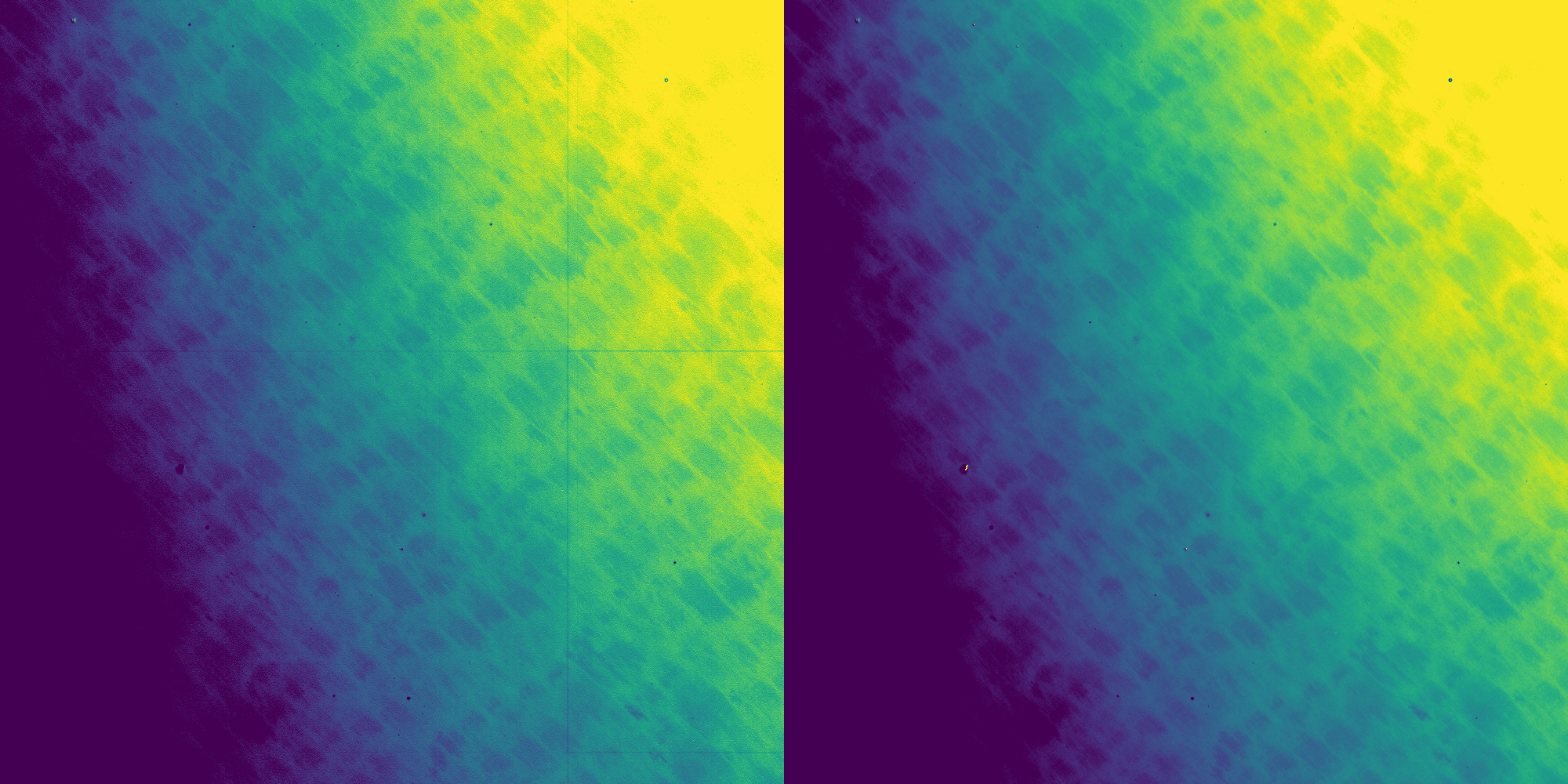
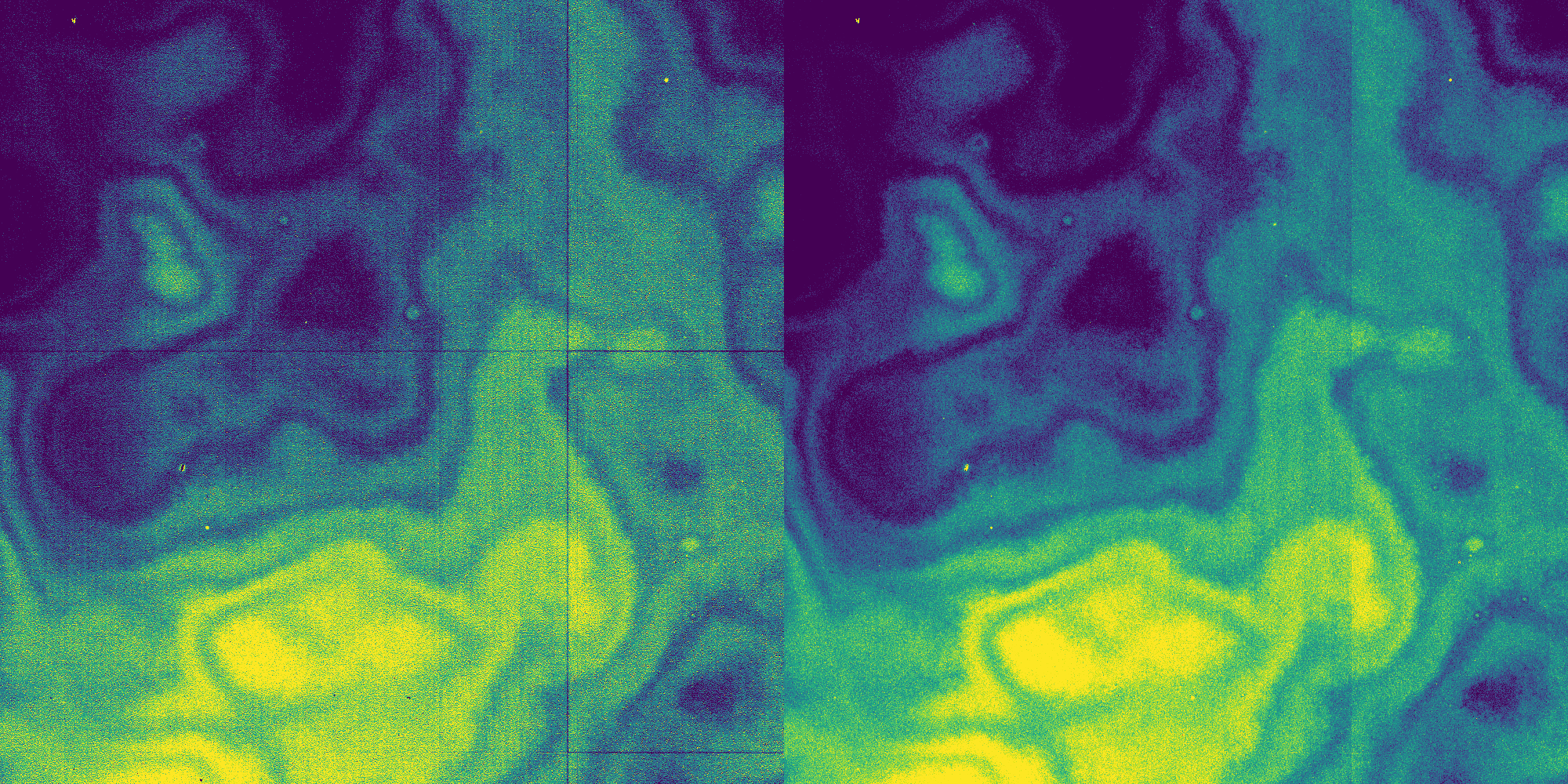
Entire DomeFlatFrames and RawDomeFlatFrames including more filters
DomeFlatFrame divided by pixel-to-pixel scale ; y=::4, x=::4
RawDomeFlatFrame divided by pixel-to-pixel scale ; y=1500:2500, x=300:1300
RawDomeFlatFrame divided by pixel-to-pixel scale ; y=::4, x=::4
Entire DomeFlatFrames for DECAM
DomeFlatFrame divided by pixel-to-pixel scale ; y=::4, x=::4